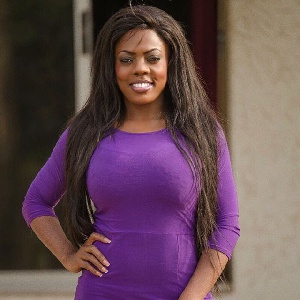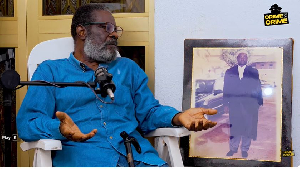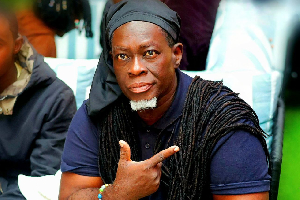Consistently, I am being awed by the morals we continue to uphold in our society, but in recent times, I have tasked myself to look out for the rationale and implications on their enforcement in modern times. Every girl who grows up in our society is made readily aware of what society expects from her and what she is to do to occupy her assigned place in her society.
One of the virtues that has almost been normalized as our sole prerogative is the fact that it is most ideal for women to remain chaste till marriage. To achieve this, we tell girls that their virginity is the most valuable possession they have.
Therefore, majority of us women, more than anything else, also task ourselves to protect it at the negligence of other traits we have and should be developing. For most of us, the closest to a formal and informative sexual reproductive education we have had is ‘abstinence.’ Every other thing we discover about our bodies, the complex ways in which it works and dealing with the fact that we, just like our male counterparts are indeed sexual beings, almost comes to us by chance. Now before you get lost, this article is to reveal how we are indeed dis-empowering our women through such statements.
The average African woman you meet is definitely a good catch! Meaning her industriousness, discipline and submissive nature is most guaranteed. I mean how else are you going to score yourself a husband to fulfill your utmost goal in life? But outside home, you would realize that African women’s preoccupation with protecting their virginity for their future husbands ends up robbing them of other equally important traits, the first being a conscious resilience to all manner of situations.
Resilience in its literal sense is the ability of a substance or object to spring back into shape; elasticity. In another sense, it is the capacity to recover quickly from difficulties; toughness. Now before you come with the attacks, note I said a “conscious” resilience. Meaning, I do agree that the average African woman probably possesses this trait, but if you read my piece, 'The Strong African Woman Myth', I noted how this trait almost appears by default due to the normalized conditions that continue to create the African Woman’s state of ‘Otherness.’
Let’s name a few:(1) Persisting traditional/cultural/societal norms that continue to deny women a place in the advancement of society, (2) Failure to recognize women’s autonomy over their lives, and (3) Overbearing expectations that discourage responsibility in men for their actions and inaction. Therefore, as it would appear, our women are ‘forced’ to be resilient, rather than ‘chose’ to be resilient.
I watched an episode of Gifty Anti’s ‘The Standpoint Show’ where now accomplished single mothers, or more appropriately in our context born-one mothers, including our very own screen goddess, Nana Aba Anamoah, were bravely sharing their stories right from scratch. That was when I started developing this piece to highlight the double standards in our society.
How can our society be against abortion and at the same time continue to stigmatize the women and girls who decide to go ahead and have their babies?
The women on the show proved beyond any measure how flawed our treatment and reception of such women is. About 90% of the time, the men responsible for the pregnancies almost immediately deny the pregnancies, reject the women and flee out of their lives completely! To create a better image, the men ‘chicken out!’ These women who already get rejected by their friends and families, have to deal with the realizations that their main hope at love, was all along a deceptive fraud.
To make things worse, for most of these women, the likelihood of them having a second chance at love and the serenity of a full-time marriage commitment is very rare. Because, collectively, we never forgive ‘their kind’ (that’s if our forgiveness is even required here); we never give them a second chance and thus, a majority of them carry the stigma for the rest of their lives.
Nana Aba recounted how the man responsible for her baby refused to even show up at the baby’s naming ceremony and has not actively taken part in any aspect of her son’s upbringing. The most crucial concern under this situation is how we are losing many of our girls to risky abortion concoctions and procedures, while offering them no better alternative by being hostile towards them when they do otherwise.
So from afar and without getting the full details, we condemn these women and heighten their fears and insecurities. In all of our hostility, we never ask about the men who are irresponsibly sowing seed into women they have no future plans for. We never for once pause to acknowledge the immense hustle these single mothers go through. Parenting is hard, but I can’t even imagine it’s one-sided form where the woman takes charge financially, physically and psychologically, amidst chastisement and hostility from society.
On the flip side, is it not interesting, that single dads end up actually being ‘hot cakes.’ Everyone immediately feels their pain and both family and even strangers, are willing to do anything in their power to help ease their responsibilities.
Some time ago, divorced women or single mothers could not make ideal leaders because as we put it, “You couldn’t manage a home, how can you manage such a position?” When Dr. Zenator Rawlings, another single mother, emerged onto the political scene during NDC’s primaries, some of the first profiles I saw on her could not desist from emphasizing her ‘unmarried’ state. The focus, unlike her male counterparts’ which usually reflected their educational and professional histories, only informed the public on who she had had kids for/with.
But here is the point the Nana Aba Anamoah Anecdote comes to play. For most young girls and women who ever find themselves in this situation, the drive to move past this juncture in their lives comes by at a slow pace. Most never stop brooding about the various disappointed looks and reactions from their parents and friends, not to mention the ceaseless gossip.
So while they are able to live, they are not able to fully bounce back: going back to school, finish vocational training, and most importantly refusing to let their past actions define who they are. That night I was encouraged by the ever eloquent, assertive and confident Nana Aba Anamoah, that certainly, women can be more than their vaginas. Nana Aba continued her education and was determined to achieve her dreams. Today, even after being rejected at the beginning of her career, she graces our screens as her only kind.
The Nana Aba Anamoah anecdote is to encourage women in our context to develop themselves beyond the domestic. While we are consciously determined to please society, it is necessary to consciously develop ourselves to produce other useful traits to help us deal with the consequences of our actions and unexpected circumstances, while coping with some of the unjust treatments we face from society: a great personality, unique dreams, goals, a complete disregard for negativity and the confidence to tell haters/observers, “to have several seats!” while we consciously bounce back into our full glory.
Note, the Nana Aba Anamoah Anecdote also influences and demands a better reception of others in similar situations. Last summer, I met a lady of my age who was a ‘born one.’ Her family, friends, including her church, had abandoned her. But I said one thing to her: you are not the first lady to get pregnant before marriage, neither would you be the last. It is up to you to turn this ‘predicament’ around for your benefit or allow it to define you for the rest of your life.
When we come across women like this, they need every encouragement and support they can get from us, and not the opposite. They should be regarded as brave women, and should be hailed and congratulated for taking responsibility for their actions (or inaction).
The Nana Aba Anamoah Anecdote is also pushing for sexual education in our homes, schools and society to actively include the exposure of girls and women to both preventive and protective measures while creating safe spaces for girls to further their knowledge in their reproductive health. In terms of long-term initiatives, I believe it is time formal laws and policies are put in place to see to it that the men in these situations take responsibility for their actions by being present in the lives of the children who come out these situations.
Opinions of Tuesday, 21 June 2016
Columnist: Efe Plange/sankofareviews.com















